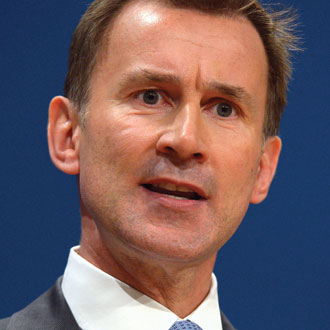NHS England reveals two thirds of 5k extra GPs could come from overseas

A contract note issued by NHS England regarding its £100m International GP Recruitment scheme admits, for the first time, that immigration is likely to provide the lion’s share of GP expansion promised to the public by 2020.
This comes despite NHS England previously insisting that the decision to significantly expand the scheme, from an initial 500 GPs, was not an admission that existing workforce policies to deliver 5,000 additional GPs would fail to deliver.
Discussing the reasons in an interview with Pulse last month, national primary care director Dr Arvind Madan said it was ‘not an admission’ that NHS England would not live up to health secretary Jeremy Hunt’s pledge.
How the DH has watered down its 5,000 extra GPs target
Overseas GP recruitment scheme highlights the Government’s failure
But the Framework Agreement for the International GP Recruitment Scheme posted by NHS England said: ‘It is currently anticipated that between 2,000 and 3,000 of those 5000 GPs may be recruited from overseas.’
This contrasts with Mr Hunt’s first announcement of the scheme at the Conservative Party Conference 2014 where he said: ‘I can today confirm plans to train and retain an extra 5,000 GPs [by 2020].’
The pledge has had several reinventions since, but the Department of Health told Pulse that it had never explicitly excluded international recruitment and this has always been part of the plan.
But the ten-point workforce plan drawn up by NHS England and education bosses in early 2015 focused on measures to attract trainees, and supporting experienced GPs to stay. It did not include any plans for international recruitment, although there were efforts to streamline the process of returning to practise for NHS-trained GPs who had been working abroad.
The BMA said the International Recruitment Scheme, although welcome, was a ‘sticking plaster’ which did not address the root cause of GP recruitment and retention problems.
BMA GP workforce lead Dr Krishna Kasaraneni said that although overseas doctors have long supported the NHS, this scheme would ‘not address fully the huge shortfall in GP numbers’.
He told Pulse: ‘There is a pattern of politicians not committing to investing in the health service and then setting unrealistic and constantly changing targets for NHS England which they inevitably struggle to meet.
‘We need the Government to stop asking the NHS to find sticking plaster solutions to the workforce crisis that they created and instead start investing fully in GP services. That will improve patient experiences, that will encourage doctors to choose GP as a career, and that will address the problems facing the profession.’
This comes as the latest NHS Digital workforce statistics showed that the fulltime GP workforce has shrunk by 450 GPs since 2015, excluding trainees.












